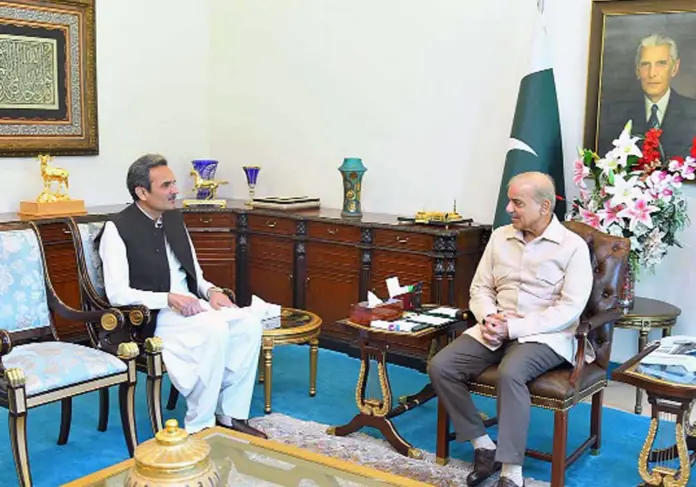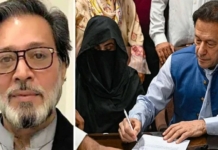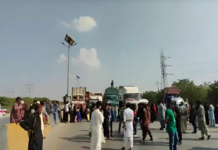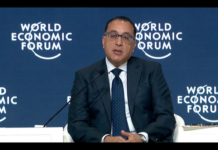Prime Minister Shehbaz Sharif on Monday decided in principle to provide subsidy on five essential items, including wheat flour, sugar, ghee/edible oil, pulses and rice for the poor and backward segments during the next fiscal year.
The said subsidy, a major relief for the poor and backward segments, would be provided across the country through Utility Stores. Presiding over a high-level meeting the prime minister approved expansion in the network of the Utility Stores in Karachi. He said the less number of Utility Stores in Karachi was not acceptable in any way, and directed the officials to present within two weeks a comprehensive plan for raising the number of Utility Stores.
He said that as the backward segment required maximum relief, the government was ready to pay every price for that purpose. Providing relief to the poor on essential items was the foremost priority of the government, he added. The prime minister said a comprehensive, consolidated, transparent and digital subsidy system should be formulated, under which relief could be provided, especially to the backward segment, on a priority basis. He also called for the formulation of a strategy to reform the subsidy system in cooperation with the ministers for finance, industries & production and poverty reduction.
The meeting was briefed in detail on the provision of subsidy through the Utility Stores, targeted subsidy for the backward segment, expansion in the number of Utility Stores across the country and progress on the programme for providing cheaper wheat flour in Khyber Pakhtunkhwa under the prime minister’s vision.
It was told that besides 1,380 franchises, the Utility Stores Corporation was directly running 3,822 stores across the country. More than 300 new stores would be opened in Balochistan, Sindh, Azad Kashmir, Gilgit-Baltistan and Punjab by July 30, the meeting was informed.
It was told that 113 million people had so far benefitted from Prime Minister Shehbaz Sharif’s relief package and got subsidies of Rs60 per kg on wheat flour, Rs21 on sugar, Rs250 on ghee, and Rs15 to Rs20 on pulses and rice. The digital subsidy system was linked with the data of the National Database and Registration Authority (NADRA) and Ministry of Poverty Reduction.
It was further told that the provision of cheaper wheat flour was being ensured in Khyber Pakhtunkhwa through 942 Utility Stores. The participants were informed that on the special instructions of Prime Minister Shehbaz Sharif, 1,000 new sale points and 200 mobile stores were also being added.
Regarding Balochistan, the meeting was told that after the visit of Shehbaz Sharif during Ramazan and under his special directives, provision of essential items at cheaper rates in the province was being ensured.
For that purpose, besides Utility Stores, mobile stores had also been established in the province to ensure the provision of subsidy in far-flung areas.
Meanwhile, Shehbaz Sharif invited Saudi businessmen to make investments in various economic sectors of Pakistan, saying that the government would facilitate investors in every way possible and remove hurdles and red-tapism.
Talking to a delegation of Saudi businessmen and investors at a reception, he assured the visitors that the investments of Saudi businessmen would be fully secured, and they could earn and repatriate their profits.
He thanked Saudi Crown Prince Mohammed bin Salman and expressed gratitude to him for his warm welcome to the Pakistani delegation, led by him, upon its arrival in Saudi Arabia. He said that during the visit, his discussions with the Saudi crown prince were extremely productive.
The crown prince reassured that Saudi Arabia would always support Pakistan in every walk of life, including trade, investment and on the diplomatic front, he recalled.
The prime minister said that since its inception, Pakistan had always received unconditional diplomatic and material support of all kinds from Saudi Arabia.
He said Saudi King Salman bin Abdul Aziz and Crown Prince Mohammed bin Salman gave billions of dollars in financial support to Pakistan, including Saudi deposits placed in the State Bank of Pakistan and deferred oil payment facility.
He urged the Saudi investors to sit down with the Pakistani government ministers and local businessmen to chart out a programme and build a roadmap to enhance Saudi investment and trade with Pakistan. He identified agriculture, agro industry, minerals, oils and water resources as some of the potential areas for Saudi investment.







